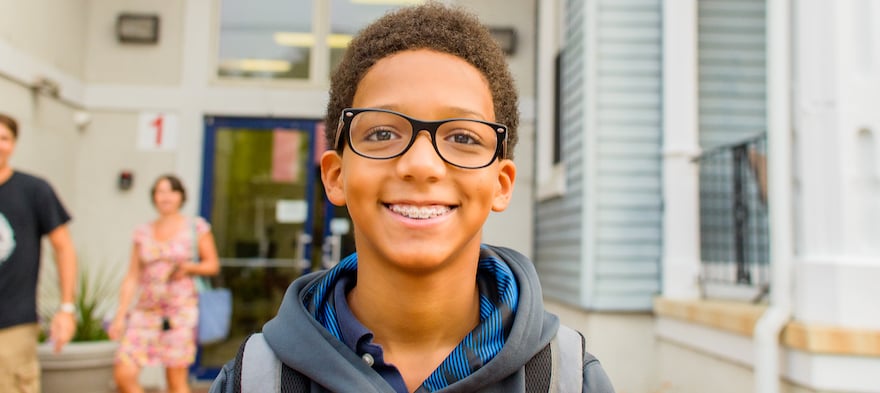
May 21, 2019 12:00:00 AM
About two years ago this time I had to write an explainer piece when the NAACP pushed for a moratorium on public charter schools. The reason? “While there are certainly some charter schools serving students well, there are also a wide range of problems with the operation of charters across the country that require attention.” To date, I think Chris Stewart has offered one of the best responses: “7 out of 8 Black public school students in America attend traditional public schools, so it goes without saying that the traditional public school system is far more responsible than charter schools for the inequities and outcomes of Black students.”
Yet, despite the facts, the war on charters continues. Yes, you read that right a war on public charter schools.
The most recent assault is happening in California—and it’s a big one. The California Teachers Association (CTA) has managed to move forward with a package of anti-charter bills that, in effect, stop all expansion of charter schools across the state. Their agenda aims to:
(If you’re looking to get into the weeds you can find a summary of each bill here.)
Despite Bernie Sanders’ recent remarks, charter schools are public schools that are overseen and authorized by publicly elected school boards.
https://educationpost.org/when-it-comes-to-charter-schools-bernie-sanders-needs-to-learn-from-black-families/Look, no one is advocating for schools that don’t work, and opponents of the bills have admitted that there are needed restrictions on how charters operate—for instance, a recent transparency bill passed in March that Oakland blogger and charter school advocate Dirk Tillotson supported. The California legislature also passed a bill eliminating for-profit public charter schools.
With all the attention to charter schools, you would be surprised to know that only 10.6% of students were enrolled in charter schools in California statewide in 2018. Only 10.6%.
But among those students are nearly 50,000 African American students across California. In fact, Black families are more likely to choose public charter schools than other ethnic subgroups. Here’s some insight into maybe why Black families are choosing public charter schools.
It becomes a little bit clearer why Black families in California might be choosing public charter schools over traditional public schools. So we have to ask, if public charter schools are actually working for Black families in California, why is there a push to ban them?
Margaret Fortune, who leads a high-performing network of charter schools that serves mostly Black students, thinks it’s evidence that “blue states oppress Black people too.”
Three other leaders of high-performing California charter schools laid it bare and called it what it is: “White families ‘do best’ for their children; when Latinos or African Americans exercise choice, it’s called ‘drain.’”
Jessica Spallino, a native of Southern California, highlights the democratic right to choice:
This exercise of choice demonstrates a pure characteristic of a democratic society as one that offers many benefits to its citizens and gives them freedom to make choices about their lives, to develop their potential as human beings and to live free from fear, harassment and discrimination. The continuous attempts to limit freedom of choice, based on declining revenue of an educational modality that no longer successfully serves all students, restricts students from this inherent Democratic right.
In a town hall in Sacramento, Roland Martin moderated a panel focused on school choice. During the townhall he made an indicting statement: “To see Black state legislators, Black city council members, Black count commissioners—who are some of the most ardent opponents of charter schools. Yet, they are representing constituents who have some of the worst academic records. That to me is an abomination.”
Last year, Lane Wright documented the war on charter schools—so you wouldn’t think it was just made up. California aside, “in many other places across the country opposition to charter growth has been mounting.”
There have been lawsuits in Washington state, Louisiana and Missouri. City councils are erecting barriers in Austin, Dallas, San Diego and Oakland. A Native American charter school in Oklahoma City Schools was denied this spring.
So, honestly, we shouldn’t be surprised when you see Bernie Sanders come out and call for a moratorium on the funding of all public charter schools, regardless of whether they are achieving great results for kids or serving a district with otherwise miserable results.
This is a concerted, nationwide effort. You see the same playbook across the country. But [pullquote]here’s what you don’t see from these charter school opponents: any mention of better outcomes for kids.[/pullquote]
The reality is Black and Brown families need options—especially in California. Traditional public schools are struggling to serve Black students and too many students are graduating without a pathway to success. There has to be less resistance to schools that are working, and more attention to how can we improve all schools so our most vulnerable students are not losing.
https://educationpost.org/heres-one-thing-you-can-do-right-now-to-defend-the-rights-of-black-families-in-california/Few issues in education spark more tension and debate than standardized testing. Are they a tool for equity or a burden on students? A necessary check on school systems or a flawed measure of...
Charter schools are public schools with a purpose. Operating independently from traditional school districts, they're tuition-free, open to all students, and publicly funded—but with more flexibility...
Despite the benefits of a diverse teaching force, prospective teachers of color fall out of our leaky preparation pipeline at every stage: preparation, hiring, induction, and retention. Here’s what...
Ed Post is the flagship website platform of brightbeam, a 501(c3) network of education activists and influencers demanding a better education and a brighter future for every child.
© 2020-2025 brightbeam. All rights reserved.
Leave a Comment